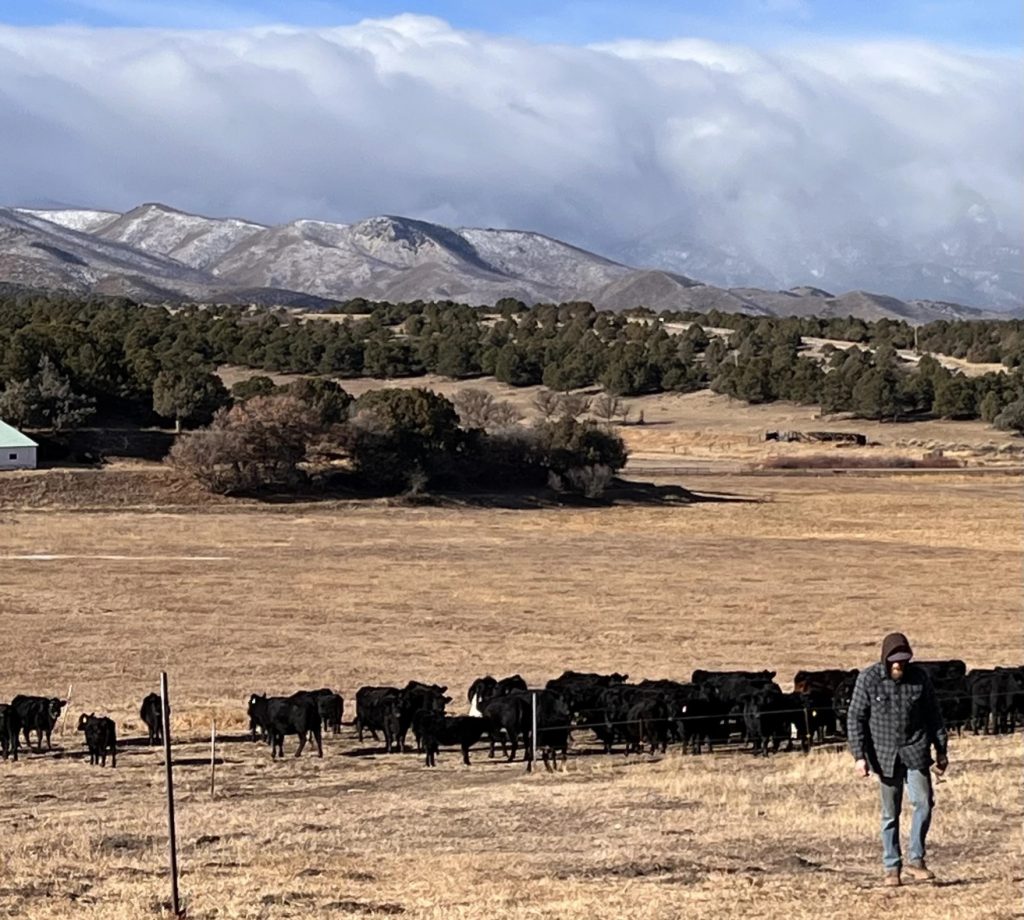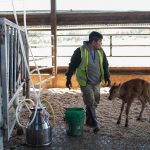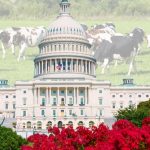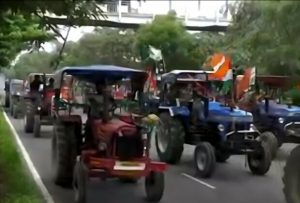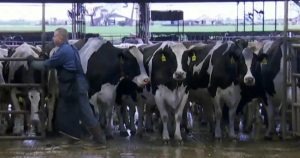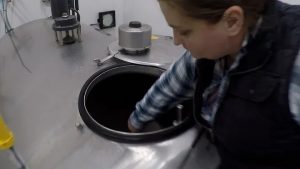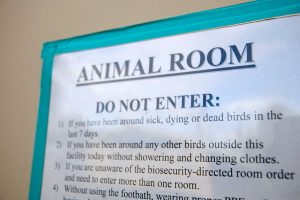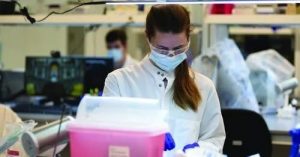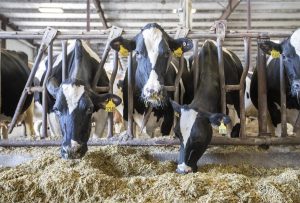
The U.S. Department of Agriculture has confirmed that dairy herds in nine states are infected with the H5N1 virus or bird flu.
Four of those herds are in Colorado, where the first infection was detected in the northeastern part of the state in April.
The USDA and the Colorado Department of Agriculture are asking farmers and ranchers to watch for signs of infection.
“ We’re asking people if you’ve got clinical signs of disease, which is usually pretty pronounced in terms of decreased feed intake, decreased milk production, cows that don’t look very, very happy, they’re not doing their normal activities, such as eating, lying down, ruminating. Those are the types of cows that we’re looking for that could have this disease,” said Dr. Jason Lombard, a veterinary epidemiologist at Colorado State University
Dr. Lombard says the first infected herd was identified earlier this year in Texas.
“And it took them quite a while to figure out what actually was causing the clinical signs in those cows. And interestingly, it was a cat that had died on a farm that was submitted, that was initially tested for high path. avian influenza and was positive because the virus is pretty rough on cats, it does kill a lot of the cats that come in contact with it. And so a deceased cat was submitted to a laboratory and that’s how they diagnosed highly pathogenic avian influenza.”
The virus has been detected in milk, so milking parlors are one possible site of transmission. But Dr. Lombard says consuming pasteurized milk is safe.
“FDA has done studies, they came out with results of a study earlier this month where they did find pieces of the virus in milk, but when they inoculated those into eggs, there was no virus grown. So that tells us that the organism was in the milk, the pasteurization essentially inactivated the virus, and now it’s unable to grow. So it’s inactive, essentially dead virus in the milk,” he said.
The USDA advises against consuming raw milk that has not undergone the same processes to inactivate the virus. The sale of raw milk is prohibited in Colorado except through cowshare programs.
The Colorado Department of Agriculture and the USDA have guidance on their websites for dairy farmers to help limit the spread of the virus. But Dr. Lombard says dairy operations are complex and officials are still investigating where exactly transmission of the virus is occurring.
“So we have milk trucks, milk drivers, we have feed, we have a lot of personnel. And it’s unknown if one of those is most important or all of those important in the movement of this virus. And that’s one of the things that we’re trying to determine is what are the highest priority risks so that we can give producers good biosecurity practices that they can implement to manage those risks,” he said.
The Centers for Disease Control says there are three confirmed cases of humans contracting the virus from cows. All were dairy farm workers, one in Texas and two in Michigan.
You can now read the most important #news on #eDairyNews #Whatsapp channels!!!
🇺🇸 eDairy News INGLÊS: https://whatsapp.com/channel/0029VaKsjzGDTkJyIN6hcP1K
